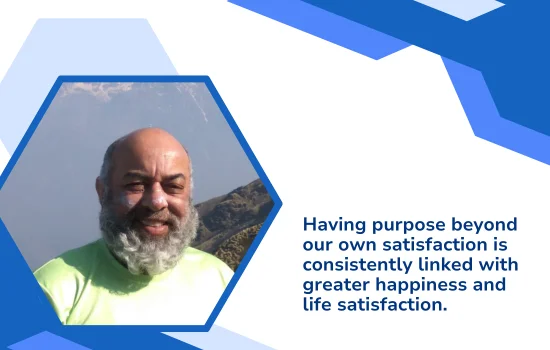
Lending a hand to someone in need doesn't just benefit the recipient—it can significantly enhance your own happiness and wellbeing. This phenomenon, sometimes called "helper's high," has been studied extensively by psychologists and neuroscientists who've uncovered fascinating connections between generosity and personal joy.
The Science Behind the Happiness Boost
Brain Chemistry Changes
When we help others, our brains release a cocktail of feel-good chemicals. Dopamine, serotonin, and oxytocin—often called the "happiness trifecta"—flood our system, creating immediate feelings of warmth and pleasure. This biological response helps explain why acts of kindness can lift our mood almost instantly.
The Perspective Shift
Helping others often pulls us out of our own problems and worries. This shift in focus can provide valuable perspective, making our personal challenges seem more manageable when compared to others' struggles. This doesn't minimize our own difficulties but places them in a broader context.
Forms of Helping That Increase Happiness
Direct Personal Connection
Face-to-face helping—whether volunteering at a shelter, mentoring a student, or caring for a sick neighbor—typically creates the strongest happiness boost. The immediate feedback of seeing someone benefit from your actions provides powerful reinforcement.
Skills-Based Contributions
Using your specific talents or expertise to help others adds an element of meaning and purpose. Whether you're a doctor providing free medical care, an artist beautifying a community space, or a teacher tutoring struggling students, applying your skills for others' benefit creates a sense of value and contribution.
Small, Everyday Kindnesses
You don't need grand gestures to experience a helper's happiness. Research shows that even tiny acts—holding a door, paying a sincere compliment, or letting someone ahead in line—can trigger positive emotions for both the giver and receiver.
A Real-Life Example
Amit, a retired accountant, struggled with feelings of isolation and purposelessness after ending his 40-year career. His days felt empty, and he found himself watching too much television and growing increasingly disconnected from others.
When his neighbor mentioned a local school needed volunteers to help children with reading difficulties, Amit reluctantly signed up, mostly to fill time. He committed to just one morning a week, working with three students who needed extra support.
"The first few weeks, I honestly went because I'd made a commitment," Amit recalls. "But then something unexpected happened. I started looking forward to my Tuesdays with the kids. Seeing their progress, their excitement when they mastered a difficult word—it gave me this feeling I hadn't experienced in years."
Within months, he increased his volunteer time to three mornings weekly and joined the school's mentoring committee. His sleep improved, he reported fewer aches and pains, and friends commented on his renewed energy and enthusiasm.
"I thought I was doing something nice for these kids, but they've given me back so much more. I feel useful again, connected to something important. My whole outlook has changed."
Why Helping Creates Happiness
Satisfies Basic Human Needs
Evolutionary psychologists suggest we're wired for cooperation and helping behavior. Our ancestors survived by supporting each other, and this legacy lives on in our neurological reward system for prosocial behavior.
Creates Meaning and Purpose
Having purpose beyond our own satisfaction is consistently linked with greater happiness and life satisfaction. Helping others connects us to something larger than ourselves, providing a sense of meaning that material success alone can't deliver.
Builds Social Connections
Acts of service create bonds between people. These connections satisfy our deep need for belonging and community, forming a crucial foundation for lasting happiness.
Finding Your Path to Helper's Happiness
Align With Your Interests
Helping is most sustainable when it intersects with activities you already enjoy. Love reading? Consider library volunteering. Enjoy cooking? Prepare meals for homebound seniors.
Honour Your Limitations
Burnout undermines both helping and happiness. Setting realistic boundaries around your time, energy, and emotional capacity ensures your service remains joyful rather than depleting.
Start Small
Begin with manageable commitments and build as you experience the benefits. Even five minutes of helping can trigger positive emotions and create momentum for more generous behavior.
Helping others isn't just the right thing to do—it's also one of the most reliable paths to personal happiness. By reaching out to support those around us, we don't diminish our own well-being but rather enhance it, creating a virtuous cycle where giving and receiving joy become beautifully intertwined.
About Cdr. Girish Konkar (Retd.)
Cdr. Girish Konkar (Retd.) is a seasoned leadership coach, keynote speaker, and corporate mentor with over two decades of experience in leadership development. A former officer in the Indian Navy, he brings a unique blend of military precision, strategic thinking, and real-world leadership insights to his coaching. Through his expertise, he helps individuals and organizations cultivate resilience, adaptability, and high-performance mindsets. Cdr. Konkar is passionate about transforming leaders by integrating discipline, emotional intelligence, and values-driven leadership into modern business environments.





